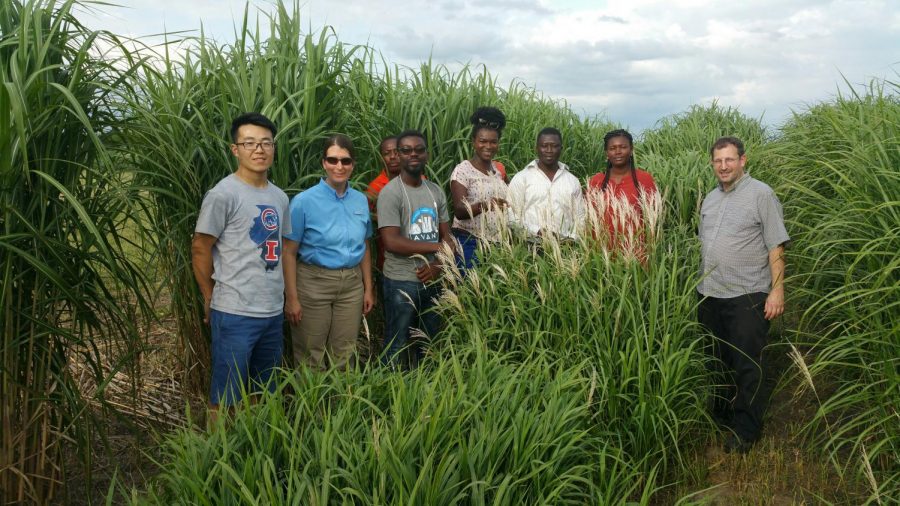UI researchers receive $1 million to study bioenergy crops
Erik Sacks, Hongxu Dong, Lindsay Clark and five visiting graduate students from the University of Ghana/The West Africa Centre for Crop Improvement (WACCI) at the plots in summer 2017.
April 7, 2018
The USDA National Institute of Food and Agriculture has announced a $1 million grant to support the research of bioenergy crops at the University.
The project is a collaboration of University researchers, HudsonAlpha Institute of Biotechnology and Alabama A&M University.
According to the press release, the grant will fund further research into better-adapted plants to be used in the biofuel supply in the United States.
Researchers are attempting to breed new cultivars, plant varieties that have been produced in cultivation by selective breeding, and test hybrids for the ability to tolerate cold weather and produce high yields.
Erik Sacks, one of the researchers on the team, said in an email bioenergy and bioproducts are important for a sustainable future, and while miscanthus holds great promise as a feedstock, better-adapted and higher-yielding cultivars are needed.
Get The Daily Illini in your inbox!
The grant will also support students who are working on plant genomic research. It includes an educational component for students from high school to graduate school.
“(This) is a valuable training component to this project that focuses on outreach to groups currently under-represented in STEM fields,” Sacks said.
Researchers ultimately hope to overcome the challenges in the biomass industry through the combination of faster breeding cycles, better-adapted, selectively-bred plants and training opportunities for young people, Sacks said.







